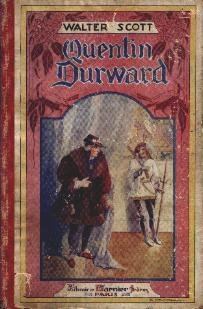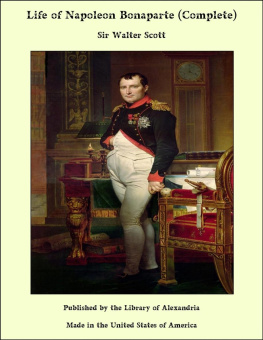Walter Scott - Peveril of the Peak
Here you can read online Walter Scott - Peveril of the Peak full text of the book (entire story) in english for free. Download pdf and epub, get meaning, cover and reviews about this ebook. genre: Adventure. Description of the work, (preface) as well as reviews are available. Best literature library LitArk.com created for fans of good reading and offers a wide selection of genres:
Romance novel
Science fiction
Adventure
Detective
Science
History
Home and family
Prose
Art
Politics
Computer
Non-fiction
Religion
Business
Children
Humor
Choose a favorite category and find really read worthwhile books. Enjoy immersion in the world of imagination, feel the emotions of the characters or learn something new for yourself, make an fascinating discovery.

- Book:Peveril of the Peak
- Author:
- Genre:
- Rating:5 / 5
- Favourites:Add to favourites
- Your mark:
- 100
- 1
- 2
- 3
- 4
- 5
Peveril of the Peak: summary, description and annotation
We offer to read an annotation, description, summary or preface (depends on what the author of the book "Peveril of the Peak" wrote himself). If you haven't found the necessary information about the book — write in the comments, we will try to find it.
Peveril of the Peak — read online for free the complete book (whole text) full work
Below is the text of the book, divided by pages. System saving the place of the last page read, allows you to conveniently read the book "Peveril of the Peak" online for free, without having to search again every time where you left off. Put a bookmark, and you can go to the page where you finished reading at any time.
Font size:
Interval:
Bookmark:
PEVERIL OF THE PEAK
By Sir Walter Scott, Bart.
CHAPTER I
When civil dudgeon first grew high,
And men fell out, they knew not why;
When foul words, jealousies, and fears,
Set folk together by the ears
William, the Conqueror of England, was, or supposed himself to be, the father of a certain William Peveril, who attended him to the battle of Hastings, and there distinguished himself. The liberal-minded monarch, who assumed in his charters the veritable title of Gulielmus Bastardus, was not likely to let his son's illegitimacy be any bar to the course of his royal favour, when the laws of England were issued from the mouth of the Norman victor, and the lands of the Saxons were at his unlimited disposal. William Peveril obtained a liberal grant of property and lordships in Derbyshire, and became the erecter of that Gothic fortress, which, hanging over the mouth of the Devil's Cavern, so well known to tourists, gives the name of Castleton to the adjacent village.
From this feudal Baron, who chose his nest upon the principles on which an eagle selects her eyry, and built it in such a fashion as if he had intended it, as an Irishman said of the Martello towers, for the sole purpose of puzzling posterity, there was, or conceived themselves to be, descended (for their pedigree was rather hypothetical) an opulent family of knightly rank, in the same county of Derby. The great fief of Castleton, with its adjacent wastes and forests, and all the wonders which they contain, had been forfeited in King John's stormy days, by one William Peveril, and had been granted anew to the Lord Ferrers of that day. Yet this William's descendants, though no longer possessed of what they alleged to have been their original property, were long distinguished by the proud title of Peverils of the Peak, which served to mark their high descent and lofty pretensions.
In Charles the Second's time, the representative of this ancient family was Sir Geoffrey Peveril, a man who had many of the ordinary attributes of an old-fashioned country gentleman, and very few individual traits to distinguish him from the general portrait of that worthy class of mankind. He was proud of small advantages, angry at small disappointments, incapable of forming any resolution or opinion abstracted from his own prejudiceshe was proud of his birth, lavish in his housekeeping, convivial with those kindred and acquaintances, who would allow his superiority in rankcontentious and quarrelsome with all that crossed his pretensionskind to the poor, except when they plundered his gamea Royalist in his political opinions, and one who detested alike a Roundhead, a poacher, and a Presbyterian. In religion Sir Geoffrey was a high-churchman, of so exalted a strain that many thought he still nourished in private the Roman Catholic tenets, which his family had only renounced in his father's time, and that he had a dispensation for conforming in outward observances to the Protestant faith. There was at least such a scandal amongst the Puritans, and the influence which Sir Geoffrey Peveril certainly appeared to possess amongst the Catholic gentlemen of Derbyshire and Cheshire, seemed to give countenance to the rumour.
Such was Sir Geoffrey, who might have passed to his grave without further distinction than a brass-plate in the chancel, had he not lived in times which forced the most inactive spirits into exertion, as a tempest influences the sluggish waters of the deadest mere. When the Civil Wars broke out, Peveril of the Peak, proud from pedigree, and brave by constitution, raised a regiment for the King, and showed upon several occasions more capacity for command than men had heretofore given him credit for.
Even in the midst of the civil turmoil, he fell in love with, and married, a beautiful and amiable young lady of the noble house of Stanley; and from that time had the more merit in his loyalty, as it divorced him from her society, unless at very brief intervals, when his duty permitted an occasional visit to his home. Scorning to be allured from his military duty by domestic inducements, Peveril of the Peak fought on for several rough years of civil war, and performed his part with sufficient gallantry, until his regiment was surprised and cut to pieces by Poyntz, Cromwell's enterprising and successful general of cavalry. The defeated Cavalier escaped from the field of battle, and, like a true descendant of William the Conqueror, disdaining submission, threw himself into his own castellated mansion, which was attacked and defended in a siege of that irregular kind which caused the destruction of so many baronial residences during the course of those unhappy wars. Martindale Castle, after having suffered severely from the cannon which Cromwell himself brought against it, was at length surrendered when in the last extremity. Sir Geoffrey himself became a prisoner, and while his liberty was only restored upon a promise of remaining a peaceful subject to the Commonwealth in future, his former delinquencies, as they were termed by the ruling party, were severely punished by fine and sequestration.
But neither his forced promise, nor the fear of farther unpleasant consequences to his person or property, could prevent Peveril of the Peak from joining the gallant Earl of Derby the night before the fatal engagement in Wiggan Lane, where the Earl's forces were dispersed. Sir Geoffrey having had his share in that action, escaped with the relics of the Royalists after the defeat, to join Charles II. He witnessed also the final defeat of Worcester, where he was a second time made prisoner; and as, in the opinion of Cromwell and the language of the times, he was regarded as an obstinate malignant, he was in great danger of having shared with the Earl of Derby his execution at Bolton-le-Moor, having partaken with him the dangers of two actions. But Sir Geoffrey's life was preserved by the interest of a friend, who possessed influence in the councils of Oliver.This was a Mr. Bridgenorth, a gentleman of middling quality, whose father had been successful in some commercial adventure during the peaceful reign of James I.; and who had bequeathed his son a considerable sum of money, in addition to the moderate patrimony which he inherited from his father.
The substantial, though small-sized, brick building of Moultrassie Hall, was but two miles distant from Martindale Castle, and the young Bridgenorth attended the same school with the heir of the Peverils. A sort of companionship, if not intimacy, took place betwixt them, which continued during their youthful sportsthe rather that Bridgenorth, though he did not at heart admit Sir Geoffrey's claims of superiority to the extent which the other's vanity would have exacted, paid deference in a reasonable degree to the representative of a family so much more ancient and important than his own, without conceiving that he in any respect degraded himself by doing so.
Mr. Bridgenorth did not, however, carry his complaisance so far as to embrace Sir Geoffrey's side during the Civil War. On the contrary, as an active Justice of the Peace, he rendered much assistance in arraying the militia in the cause of the Parliament, and for some time held a military commission in that service. This was partly owing to his religious principles, for he was a zealous Presbyterian, partly to his political ideas, which, without being absolutely democratical, favoured the popular side of the great national question. Besides, he was a moneyed man, and to a certain extent had a shrewd eye to his worldly interest. He understood how to improve the opportunities which civil war afforded, of advancing his fortune, by a dexterous use of his capital; and he was not at a loss to perceive that these were likely to be obtained in joining the Parliament; while the King's cause, as it was managed, held out nothing to the wealthy but a course of exaction and compulsory loans. For these reasons, Bridgenorth became a decided Roundhead, and all friendly communication betwixt his neighbour and him was abruptly broken asunder. This was done with the less acrimony, that, during the Civil War, Sir Geoffrey was almost constantly in the field, following the vacillating and unhappy fortunes of his master; while Major Bridgenorth, who soon renounced active military service, resided chiefly in London, and only occasionally visited the Hall.
Font size:
Interval:
Bookmark:
Similar books «Peveril of the Peak»
Look at similar books to Peveril of the Peak. We have selected literature similar in name and meaning in the hope of providing readers with more options to find new, interesting, not yet read works.
Discussion, reviews of the book Peveril of the Peak and just readers' own opinions. Leave your comments, write what you think about the work, its meaning or the main characters. Specify what exactly you liked and what you didn't like, and why you think so.




